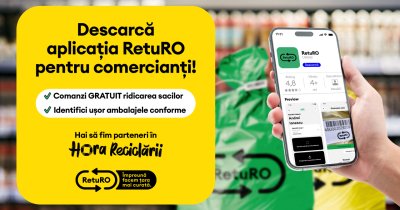According to EU-Startups, industries that heavily rely on energy have been subject to the EU Emissions Trading System (ETS) since 2005, which essentially means the internalization of carbon dioxide and a price set for emissions in order to promote the transition to a carbon-neutral industry.
Since EU authorities were debating earlier this year about the push to cleaner energy sources and new policies regarding the carbon market on the bloc, EU carbon permits traded at a record 98.5 euros per ton of emitted carbon dioxide emissions.
Companies can be fined if they have higher emissions than they are allowed through the emission allowances.
After 2027, these allowances are said to be subject of auctioning, but this decision could be taken sooner, in 2025, if there is the need for a price corridor.
What's more is the fact that the number of allowances made available for companies is declining each year.
One option companies have is to buy credits from emission saving projects, in order to contribute to carbon offsetting, which means to reduce or remove carbon emissions in order to compensate for the same emissions being made elsewhere.
This way, companies can make sure that they comply with the law, but at the same time that they are contributing to a greener future.
Startups that help companies to reduce their carbon emissions
Basically, businesses can offset their carbon footprint to financially aiding projects that aim to improve the environment, with a few startups starting to do just this.
ClimateTrade is a startup based in Valencia that provides emissions-offsetting services to businesses looking to lower their carbon footprint by investing in environmental projects.
The company's platform calculates the carbon footprint of a specific company and provides it with the equivalent costs, which will be invested in projects that can compensate for the environmental footprint of that company's activity.
The startup, which was founded in 2017, got an investment of nearly 7 million euros at the start of this year and already collaborates with some Spanish companies, such as Cabify and Banco Santander.
Another startup in this sector founded also in 2017 is Carbonex, which uses a blockchain-based solution for the carbon credit exchange, just like ClimateTrade.
The company founded in London allows its customers to use the carbon credits in order to either aid existing climate projects, or they can found their own green businesses, if they so desire.
Puro.earth is a Finnish startup founded in 2018 that aims to help companies reduce or neutralize their emissions through enabling them to work with suppliers specialized in carbon removal.
For each metric ton of CO2 emissions removed, companies receive CO2 Removal Certificates, known as CROCs, which are independently verified by a third party.
Companies can then add CROCs to their sustainability reports and/or they can offer carbon-neutral services or products.
These practices should hopefully motivate the industry to become greener and companies will reduce their carbon emissions enough for us to reach our climate goals in time to prevent the catastrophic effects of global warming.
 Mihai - Cristian Ioniță
Mihai - Cristian Ioniță












Any thoughts?